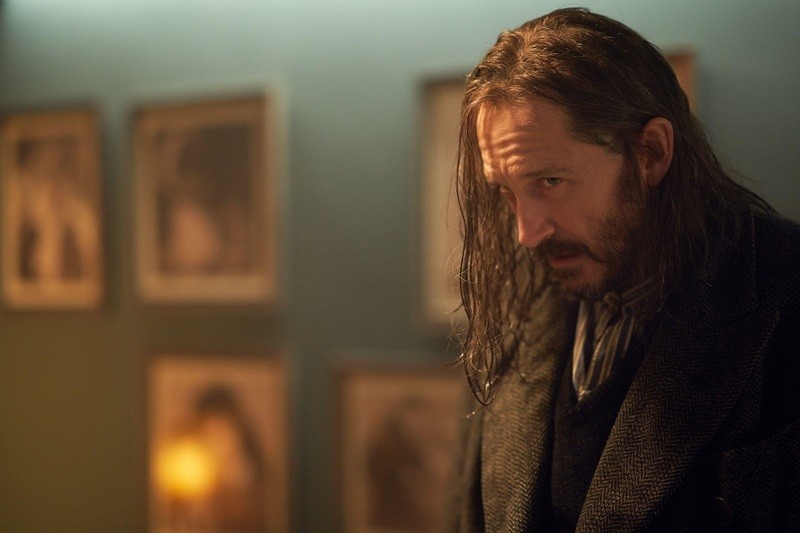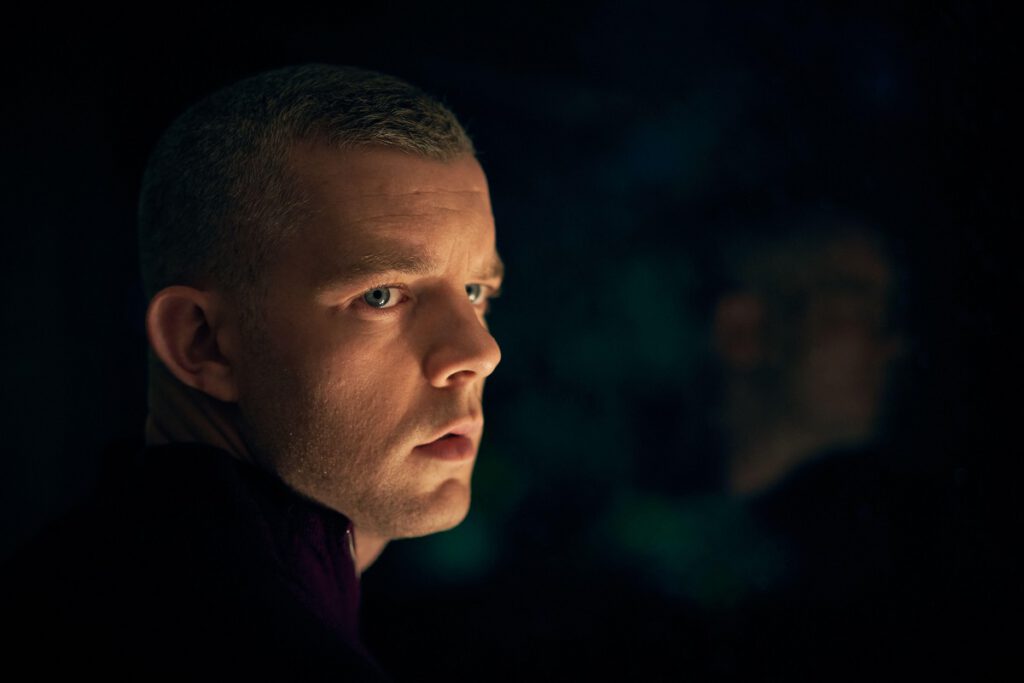While U.S. audiences were complaining about the frustrating plotting of HBO’s disappointing “The Undoing” back in October, their British counterparts had a similar experience with ITV’s “The Sister,” now premiering in its entirety on Hulu this Thursday, January 21st. It too is based on a mystery novel, this one by Neil Cross (“Luther”), who adapts his Burial into a four-part mystery that has about one episode of interesting story to tell and less than that in terms of character development. “The Sister” starts with an intriguing premise, but if it’s not spinning its wheels, it’s digging into its own grave with unrealistic choices, twists, and a frustrating flashback structure. There’s a welcome supernatural tinge to the project, but even that feels half-hearted by its end. Its frustrating, crazy end.
Nathan Redman (Russell Tovey) is first seen about to commit suicide in 2013. He pours the pills out on the table, gets himself something to wash them down, and starts to throw them in his mouth. All of a sudden, he freezes. Someone on TV has caught his attention. It’s Holly Fox (the very good Amrita Acharia), the sister of a missing girl. Nathan looks like he knows her. And he stops his suicide attempt.
Cut to years later on a rainy night as Nathan sits and reads. A knock on the door reveals the unkempt and unnerving Bob Morrow (Bertie Carvel), and Nathan looks like he’s literally seen a ghost (and Carvel appears to be going for the same demonic tenor as his namesake from “Twin Peaks”). He tells Nathan that a construction project means they have to move the body. You see, Nathan knows exactly where Holly’s missing sister is because he and Bob put her there in the cold ground. And then guess what Nathan did? He wooed and married the sister of the missing girl. Yes, “The Sister” is not only a tale of horrific death but the inexplicable behavior that follows it, forcing the criminal to live an even greater lie than normal, one that’s about to unravel with the return of his accomplice.
“The Sister” jumps back and forth—as all murder mystery mini-series seem to do lately—slowly revealing the details of what happened in the early hours of New Years Day back in 2010, how Nathan and Holly got together in 2013, and then the current dilemma this conflicted criminal faces. One of the more intriguing aspects of “The Sister” is a supernatural element in that Bob turns out to be a paranormal expert, and he’s convinced that Emily has quite literally returned to their lives. The sense that Nathan is not only haunted by his actions that night but could literally be haunted as well distinguishes “The Sister” from some of its peers, but, like most things here, it’s underdeveloped.

From its opening scenes, “The Sister” has to navigate a moral tightrope. We can’t root for Nathan to have a happy, normal life with the sister of the woman he murdered and buried, right? And yet the first couple episodes feel motivated by him trying to keep his façade in place, creating a unique tension in the viewer that comes with a downfall drama. In a sense, we want him to get caught, especially given the lie he’s living with Holly, but we’re also smart enough to know there’s more to this story than meets the eye.
The problem is that Cross and his team can’t find a way to make what might have worked on the page into something that works on TV. “The Sister” circles its themes and twists without really digging into them. It meanders when it needs to pulse, and it gives Tovey too little to play other than the panic he has the minute Bob knocks on his door. He’s in a constant state of cover-up, trying to keep his potential family (he’s trying to have a baby with Holly) from coming apart. And Bob ends up being more than just a face from the past. He’s an aggressor and obvious villain, pushing Nathan to come to terms with what happened that night but also somewhat gleefully watching him collapse.
Of course, there’s a twist or two along the way, including a few biggies in the final episode, but most of them aren’t satisfying. On the page, this story probably felt like a tale of regret and paranoia in a way that recalls countless other mysteries about men whose darkest secrets came back to shatter to their domesticity. In mini-series form, it just doesn’t connect the same dots. The characters are too thin, the good ideas remain unexplored, and the suspension of disbelief shatters in a few places. It turns out that mediocre TV mysteries are not exclusively an American phenomenon.
Whole series screened for review.












